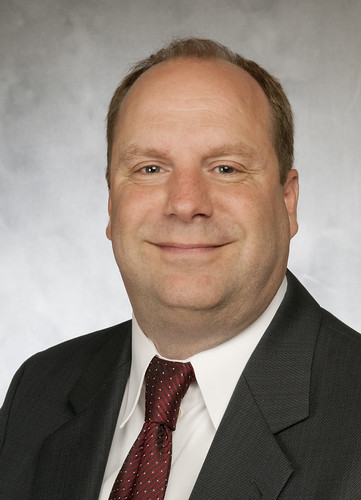Florida’s ‘Two-Strikes’ Law Put Him in Prison for Life. Even His Victim Said It Was Too Harsh.
Mark Jones #MarkJones

It was a hot June day in 2011, and Mark Jones was a man adrift.
Since exiting the U.S. Military Academy at West Point in the 1990s after what he says was a violent hazing incident (West Point declined to comment), the onetime cadet had been struggling with PTSD and alcoholism. He had committed a string of petty thefts, been imprisoned for stealing a drill from Home Depot and been released.
That day in June, Jones says he was drunk in the parking lot of a Florida grocery store. According to reports, he leaned into a car, grabbed 69-year-old Eunice Hopkins’ arm and told her to give him her car keys. He had no weapon. She screamed and drove away. He left.
Prosecutors offered Jones a plea deal in connection with the attempted carjacking that would’ve given him 15 years in prison. Jones went to trial instead. It was a risk: Prosecutors had chosen to invoke a Florida statute that increases prison time to the mandatory maximum for people found guilty of certain repeat offenses — in Jones’ case, life in prison. When a jury found him guilty, his fate was sealed.
“My sentence is life without the possibility of parole. So I’m in here till I die,” Jones says from prison, in the new documentary Two Strikes.
As the documentary from FRONTLINE, The Marshall Project and Firelight Media explores, Florida’s so-called “two-strikes” law, more formally called the Prison Releasee Reoffender law, can result in people getting mandatory maximum sentences for committing felonies within three years of their release from prison — sometimes, for crimes in which no one is injured. Florida has virtually abolished parole.
Proponents have defended the two-strikes statute, which prosecutors have sole discretion to invoke, as a means of improving public safety. But others have expressed concerns about sentencing in cases like Jones’ — including Jones’ victim herself. As the above excerpt recounts, according to The Marshall Project and the Tampa Bay Times, when Hopkins learned about Jones’ life sentence, she reached out to the prosecutor to complain, saying, “No, this is too much! He’s a young man!”
More than 10 years later, Jones is still living behind bars — one of thousands of people in Florida serving mandatory maximum sentences under the state’s two-strikes law. While Florida’s statute is among the strictest, many states have laws that increase prison time for repeat offenses.
Jones, whose multiple state and federal appeals have been unsuccessful, says in the documentary that he’s “trying to make a difference” from inside prison.
“I’m a law clerk at the prison law library,” he says. “You got a lot of guys in here … they can’t even write an essay, you know, let alone put a brief together for the district court of appeal, and they need help.”
He is making a long-shot appeal to the U.S. Supreme Court, and he says he is remorseful for his crime.
“Anything I say about the severity of my sentence, I don’t mean to minimize the impact I had on her that day,” Jones says about Hopkins in the above excerpt. “She has every right to, you know, have a normal day. And, uh, so I’m sorry. From the bottom of my heart.”
From a team led by producer and director Ursula Liang, a 2021 FRONTLINE/Firelight Media Filmmaker Fellow; producer Tessa Travis; and co-producer and reporter Cary Aspinwall of The Marshall Project, Two Strikes raises tough questions about crime, punishment and rehabilitation — and how harsh sentencing laws mean that people whose crimes didn’t cause physical injury can end up incarcerated for life.
Two Strikes leads a two-part hour of FRONTLINE on the U.S. criminal justice system that will premiere Sept. 5, 2023, on PBS stations (check local listings) and on FRONTLINE’s YouTube channel at 10 p.m ET/9 p.m. CT. The second segment, Tutwiler, explores the complexities of pregnancy in prison. Two Strikes and Tutwiler will be available to watch in full at pbs.org/frontline, themarshallproject.org and in the PBS App starting Sept. 5, 2023, at 7 p.m. ET /6 p.m. CT. Two Strikes will also be available to stream online with Spanish captions.
Patrice Taddonio, Senior Digital Writer, FRONTLINE